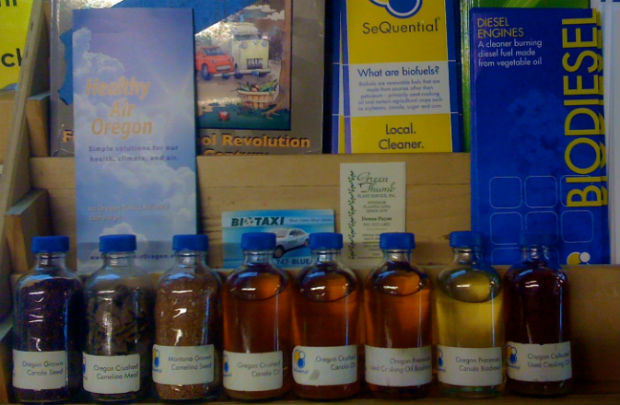Here we go again. Fossil fuel companies are trying to pass a law to weaken or even repeal Oregon’s Clean Fuels Standard, a successful program that reduces climate pollution from the fuel in our cars, trucks, and buses by 10%.
Your help is needed to push back.
In its first year, Clean Fuels is working great. It has reduced climate pollution by 589,000 tons – equivalent to taking 124,000 cars off the road this year. That’s nearly a third more than required by the program.
Climate change threatens Oregon forests, coastline, economy and more. Most of us use gas and oil every day because we don’t have many other choices right now. The Clean Fuels Program starts to change that.
Clean Fuels reduces the air pollution that causes climate change, and reduces Oregonians’ reliance on dirty fossil fuels for powering our cars and trucks. Clean Fuels has created jobs across the state, reduced air pollution, and started to create cracks in fossil fuel companies’ monopoly over transportation fuels.
Cars, trucks, and buses are responsible for over a third of our state’s climate pollution, so reducing pollution from fuels is an important climate strategy.
But fossil fuel companies care about their pocketbooks, not Oregon. So they’re stepping up their attacks, pushing forward House Bill 3386 to roll back this successful climate program.





